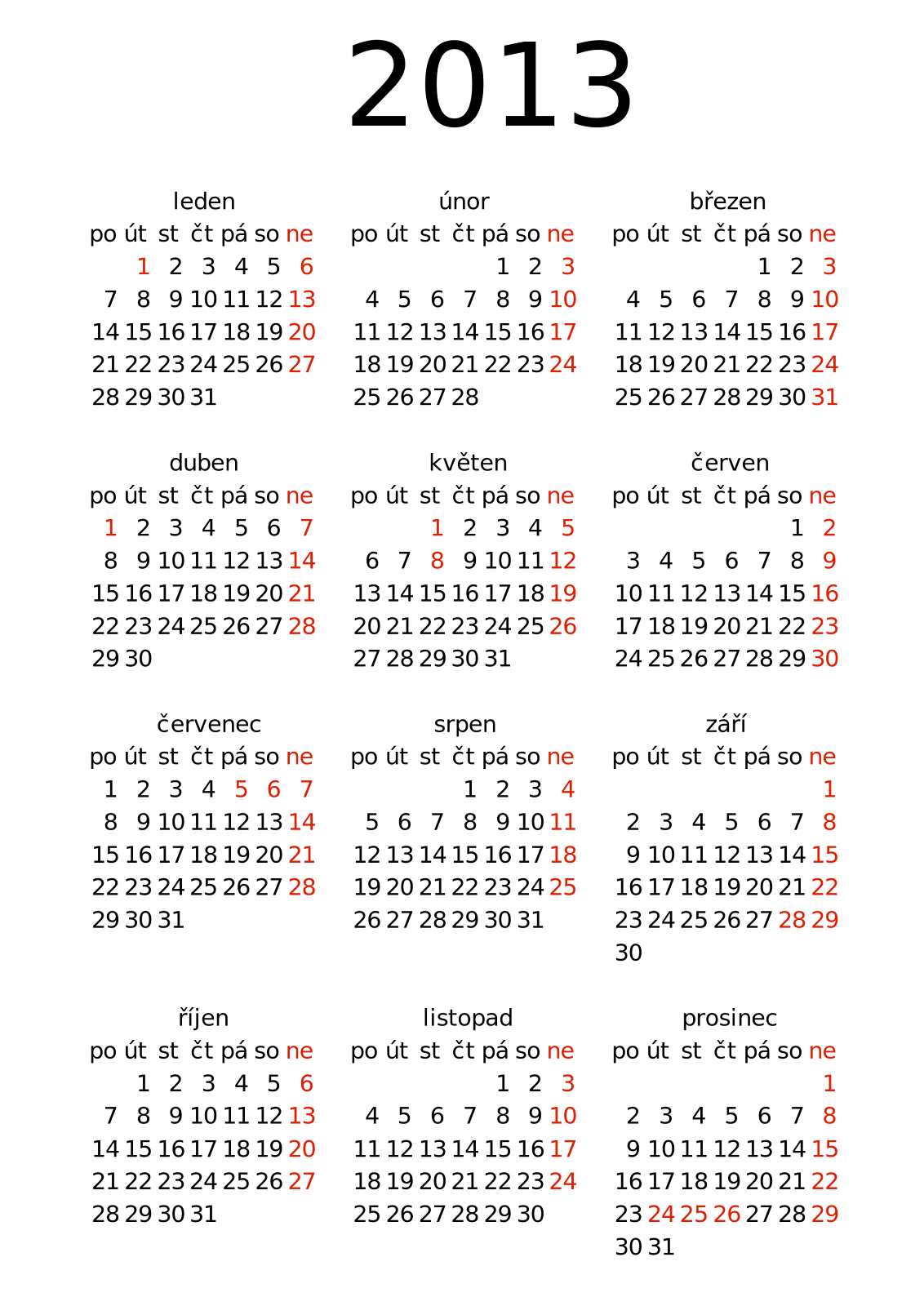6.2 – Czech Days of the Week
In this unit you’ll learn
Co je dnes za den?
What day is it today?
Dnes je pondělí.
Today is Monday.
Zítra je úterý.
Tomorrow is Tuesday.
The following chart gives the days of the week in Czech. In the rightmost column we have given the etymology of these words. While you may not strictly need to know the etymology, it is interesting to see where the days get their names from and how they often relate to numbers.
|
Czech Day of the Week |
English Translation |
Etymology |
|
pondělí |
Monday |
comes from the words po ‘after’ and neděle ‘Sunday’, i.e. the day after Sunday |
|
úterý |
Tuesday |
comes from an older Czech word meaning ‘second’, i.e. the second day of the week. |
|
středa |
Wednesday |
střed – center. It’s a day that is right in the center of the week. |
|
čtvrtek |
Thursday |
čtvrtý – ‘fourth’, i.e. the fourth day of the week. |
|
pátek |
Friday |
pátý – ‘fifth’, i.e. the fifth day of the week. |
|
sobota |
Saturday |
the word sobota is related to the worth sabbath |
|
neděle |
Sunday |
we know the verb dělat ‘to do’; well it also can mean ‘to work’ in some contexts. neděle is the day with no working (ne dělat) |
Take a look at the following calendar of Czech days:
A few things to notice:
- See how these days are abbreviated. Just the first two letters of the name of the day. Easy enough, right?
- What day does the week start with? It doesn’t start with Sunday like calendars in the United States, does it? In the Czech Republic (and many parts of the world), the week starts on Monday. Also not too unreasonable…
Days of the Week and Cases
Nominative Case
který den je dnes? what day is it today?
The question about (and similar ones when we learn other tenses, i.e. what day was it yesterday, etc.) is one of the first ways we’ll use the days of the week. The forms you learned in the table above are the days of the week in the nominative case and these are the forms you’ll use when answering this question. Take a moment to think about other sentences we’ve been making using the nominative case, e.g. Jan je profesor – Jan is a professor; Petra je spisovatelka – ‘Petra is a writer’. The use of the nominative with days of the week is similar to the use of the nominative in these examples.
Accusative Case
If you want to say on a day of the week, then you will need to use the preposition v day of the week in the accusative case. These forms are given in the chart below:
|
Czech Day of the Week |
English Translation |
|
v pondělí |
on Monday |
|
v úterý |
on Tuesday |
|
ve středu |
on Wednesday |
|
ve čtvrtek |
on Thursday |
|
v pátek |
on Friday |
|
v sobotu |
on Saturday |
|
v neděli |
on Sunday |
The days of the week are put into the accusative case following the rules we have already learned. In many instances, no change takes place (because the Accusative case is the same as the Nominative). In the table above, the endings were underlined where they differ from the nominative.
If you want to say on what day?, as in On which day do you have time off? use the following phrase:
V(e) který den…? ‘On which day…?’
V(e) které dny…? ‘On which days…?’
v and ve
The preposition v has an alternate form ve when the word that follows has a difficult consonant cluster (i.e. imagine how difficult it would be to say *v středu, v čvrtek)
Examples:
Obvykle pracuju v pondělí a v úterý.
I usually work on Monday and Tuesday.
Často uklízíme byt ve středu nebo ve čtvrtek.
We often clean the apartment on Wednesday or Thursday.
Pavla nikdy nepracuje v neděli.
Pavla never works on Sunday.
Image used in this document comes from this source.
